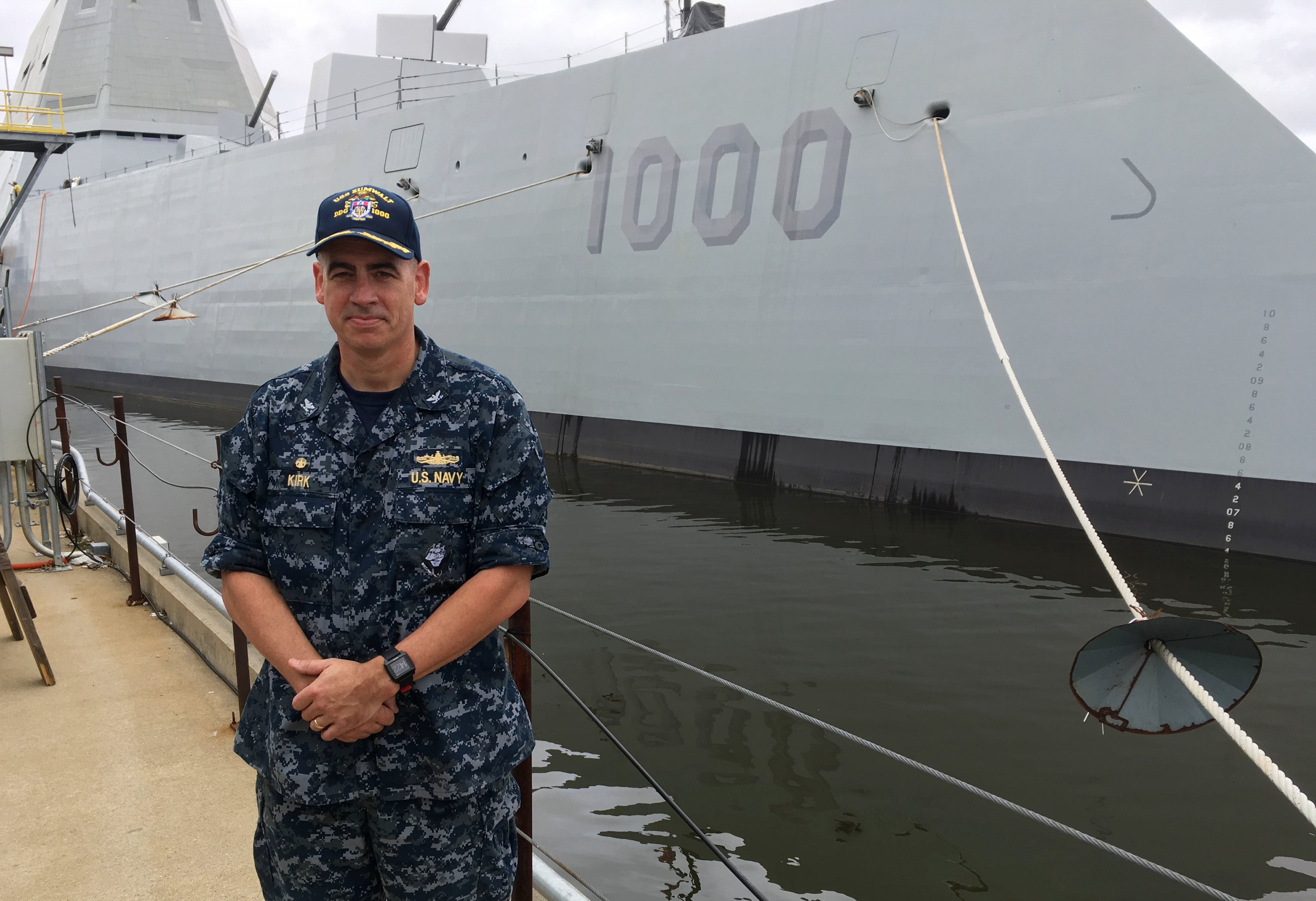BATH, Maine — The nation's largest and most technologically sophisticated destroyer will join the Navy with a crew that's the smallest of any destroyer built since the 1930s thanks to extensive automation.
The stealthy Zumwalt departed Wednesday from Bath Iron Works to head to its commissioning ceremony with a crew of 147 officers and sailors that was praised by their skipper for their preparation over the past three years to get the first-in-class warship ready for duty.
"On this ship, teamwork is at a premium. The three things this crew exemplifies is high level of technical expertise, great teamwork and then the toughness to get done what needs to get done," Capt. James Kirk said before the ship maneuvered down the Kennebec River to sea.
The 610-foot destroyer once headed out for sea trials in a snowstorm, and hundreds of people gathered to watch Wednesday as it headed into the remnants of Tropical Storm Hermine while leaving Maine for good.
The churning ocean with seas up to 14 feet high near Cape Cod won't prevent the Zumwalt from paying a visit Thursday to Newport, Rhode Island.
The sleek warship will turn heads, no doubt.
It features an angular shape to minimize its radar signature, an unconventional wave-piercing hull and a composite deckhouse that hides radar and other sensors. It boasts a powerful new gun system that can unload 600 rocket-powered projectiles on targets more than 70 miles away.
It weighs in at nearly 15,000 tons, about 50 percent heavier than current destroyers. But the crew size is half of the 300 personnel of those ships.
Heavy automation of fire suppression, flood control and other systems means fewer sailors are required, part of a trend in the Navy. The new Ford-class aircraft carriers will sail with several hundred fewer crew members.
David Aitken, the Zumwalt's fire control chief, said all sailors are cross-trained, but there's more sharing of tasks on the Zumwalt.
"We all work together because there are fewer of us," said the chief petty officer, who's the primary supervisor for sailors who operate the ship's weapon systems. He said he prefers the arrangement because there's more work to do and more systems to learn.
But some are concerned that the Navy could be going too far in reducing the number of sailors. Commanding officers like to have an "extra margin" to account for injuries or missions that could leave the crew depleted, said retired Vice Adm. Pete Daly, CEO of the U.S. Naval Institute.
The Zumwalt, Daly said, has the smallest crew size since the Farragut-class built in the 1930s, which featured a similar complement of sailors. And those ships were tiny in comparison to the Zumwalt, he added.

Capt. James Kirk, skipper of the future Zumwalt, stands in front of the destroyer at Bath Iron Works on Tuesday in Bath, Maine. The ship left the shipyard on Wednesday to be commissioned in Baltimore.
Photo Credit: David Sharp/AP
The Zumwalt's crew is constantly talked up by Kirk, who wants to make sure the highly trained sailors are not overshadowed by the vessel's technology.
But it's hard to escape the ship's gee-whiz factor.
The bridge looks like something from "Star Trek" with two chairs surrounded by nearly 360 degrees of video monitors, with inevitable comparisons of the Zumwalt to the Starship Enterprise and the skipper to the fictional Captain Kirk.
The real Kirk shrugs off the Starfleet jokes with a smile.
"Certainly I have been ribbed every now and then with someone saying, 'You're going where no man has gone before, on this class of ship,'" Kirk joked.




